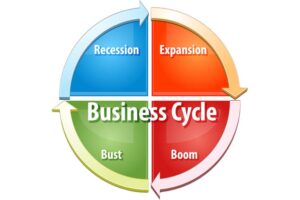In 2025, Smart Money Moves have become essential. Americans are shifting from impulse buying to strategic saving and thoughtful investing.
With economic uncertainty and lingering inflation, households are adopting smarter habits. This evolution isn’t just necessary—it’s empowering.
1. Smart Money Moves: Embracing “Revenge Saving”
- Americans are trading post-pandemic “revenge spending” for “revenge saving.”
- 37% report saving more; among those earning over $125 k, savings rose above 44%.
- Even Gen Z (18–25) leads this charge, with 59% prioritizing savings.
- The national savings rate increased from 4.1% to 4.9% in April—proof of a shift toward financial resilience.
Why it matters:
Transitioning to deliberate saving builds a financial buffer that’s more sustainable than fleeting spending sprees.
2. Smart Money Moves: Prioritizing Emergency Funds
- According to Bankrate, 46% of adults have less than three months of expenses saved.
- Another 24% have no emergency savings—41% of Gen Z, worryingly.
- Among those dipping into funds, 37% used money for essentials like bills and repairs.
Experts recommend:
- Build 3–6 months of expenses—and even 6–12 months amid 2025’s uncertainty.
- Automate deposits into a liquid, high-yield savings account.
3. Smart Money Moves: Reallocating Cash into Investments
- A JPMorgan Chase Institute study reveals a shift from checking/savings into brokerage, money-market, and CD accounts
- Total household cash balances are nearing historical growth rates.
- Low-income families (<$35k/year) saw savings grow 5–6% annually, despite income disparity.
Why this matters:
Higher-yield accounts and diversified instruments can earn more interest—turning passive money into active growth.
4. Smart Money Moves: Seeking Professional Guidance
- A Vanguard study found clients saved 100 hours a year by hiring a financial advisor.
- 78% of those with CFPs had emergency funds of 3+ months—compared to 53% without.
- Only 8% of those with CFPs felt anxious about money, against 18% otherwise.
Bottom line:
Time saved + emotional peace = greater financial productivity. For many, a fee-only advisor is well worth the investment.
5. Smart Money Moves: DIY Savings & Spending Curb
- 80% of Americans are doing DIY home repairs to save money.
- 61% repair rather than replace; “feeling in control” drives 80% of respondents.
- Subscription audits, couponing, multiple-store shopping—and common-sense budgeting—are on the rise.
Smart action:
Practical steps like maintenance, minimalist spending, and thoughtful budgeting all support healthier finances.
6. Smart Money Moves: Taming Emotional Spending
- Finwisor’s CEO warns about the “I deserve it” mindset—labeling it slow financial suicide.
- MoneyTalksNews reminds investors to avoid knee‑jerk reactions and focus on grounded financial actions.
Tip:
Pause before buying. Ask: “Does this align with my long‑term Smart Money Moves strategy?”
7. Smart Money Moves: Long‑Term Planning & Portfolio Balance
- Experts suggest tailoring portfolios: Gen Z stays equity-heavy; near-retirees shift to bonds.
- MarketWatch and Forbes advise monthly reviews to adjust for life‑stage and economic trends.
Coach’s note:
Stay strategic. Align investments with future plans—like home buying, education, or retirement.
8. Smart Money Moves: Combatting Consumer Debt
- Bankrate reports 33% of Americans have more credit-card debt than savings.
- But this is an improvement from 36% in prior years.
- A combined strategy of simultaneous saving + debt repayment is chosen by 35% of people.
Strategy:
Adopt a dual approach—automate savings while tackling high-interest balance.
9. Smart Money Moves: Building Financial Literacy
- 65% of Americans aim to improve money habits; 44% embrace slow-living & “no-buy” challenges.
- Yet, many struggle with terms like APR, ROI.
- Only 35% know high-yield accounts are FDIC-secured vs. some investment risks.
Thought starter:
Knowledge is power: Webinars, books, apps, or trusted blogs can raise the bar fast.

10. Smart Money Moves: Quotes to Inspire You
“Do not save what is left after spending; instead spend what is left after saving.” – Warren Buffett
“An investment in knowledge pays the best interest.” – Benjamin Franklin
These voices remind us that mindful habits today build tomorrow’s wealth.
Key Takeaways – Smart Money Moves Recap
- Revenge saving = building financial control.
- Prioritize 3–12 months emergency fund—automate it.
- Shift cash into higher-yield instruments.
- Consider professional help to save time and stress.
- DIY living reduces costs and fosters resilience.
- Control emotional spending—pause before you buy.
- Balance your portfolio by life stage.
- Save and repay debt simultaneously.
- Invest in financial education.
- Draw inspiration from proven quotes.
FAQs
Q: What counts as a Smart Money Move?
A: Anything that enhances your long-term financial well-being—saving, investing, reducing costs, or gaining clarity.
Q: How much should I save monthly?
A: Aim for at least 10–20% post-expense income; adjust as needed for emergencies or goals.
Q: When to see a financial advisor?
A: If you’re overwhelmed, saving little, or lack clarity—DIY is good, but an advisor can guide big decisions.
Q: Are high-yield savings accounts worth it?
A: Yes—current yields (~4%) exceed traditional savings and are FDIC-insured.
Q: How to control impulse buying?
A: Delay decisions 24–48 hours, ask if it fits your goals, and track purchases to boost awareness.
External Links for Smart Money Moves
- Intel on regrets & goals
- [MarketWatch] – Strategic uncertainty planning
- [Bankrate Emergency Savings Report] – In‑depth data
Conclusion
In 2025, Americans are consciously reshaping their financial destinies. From Revenge Saving and building emergency funds to leaning on pros and investing smartly—Smart Money Moves are chosen over momentary pleasures. By coupling discipline with strategy, you can transform today’s choices into tomorrow’s stability.





